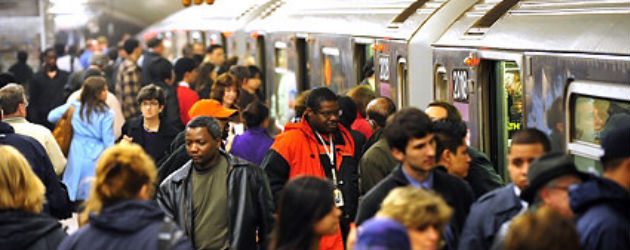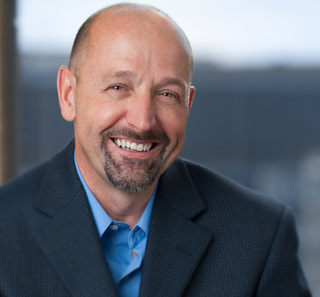President's Blog
Inclusive Economics Could Fend Off the Next Financial Crisis

Millions of Americans operate outside the traditional banking system. In fact, some estimates show this to be the reality for one in nine or more than 12 million, households.
At Global Forum 2015 in Atlanta, Operation HOPE recently highlighted the plight of these neighbors. Their lives are quite different from ours simply because they do not have access to bank accounts.
The root causes of this phenomenon are poverty and lack of necessary knowledge. In order to keep a checking account, an individual needs both sufficient funds and the know-how to use it.
Operation HOPE, now an international organization, works with non-profits, bankers and other partners to promote financial literacy and economic empowerment. For example, with sufficient knowledge, an individual can choose the right financial products and stay away from predatory lenders.
Referring to the world economy, President Clinton, the forum’s keynote speaker, promoted the concept of inclusive economics. This concept is based on a plan to open up the mainstream economy to people who are currently functioning in lower parallel systems.
The proponents of inclusive economics argue that giving access to full-fledged economic citizenship to the billions of people currently carved out of it will strengthen the system because their growing prosperity will add consumers with means to existing markets. This lesson would apply well to the US, where millions of people could benefit from it.
When you think about it, an economic system should be inclusive by nature so it can expand.
Beyond complex statistics, one of the forum speakers shared that American households without bank accounts pay as much to access and manage their funds in a year as they do on dinner every night. This increases the economic gap in the US and leaves these households further behind.
Some allude to the fact that chronic, economic uncertainty can be linked to political and social unrest, as some groups grow increasingly more frustrated with their own lots in life. And everybody agrees that prosperous societies often enjoy a more fulfilled citizenry and more peaceful circumstances.
So what are some of the trends and how do we reverse them?
Studies show that people functioning outside the banking system rely on check-cashing places to access their funds. Some also use payday loans with interest payments making it almost impossible to get out of debt from one pay period to another.
In fact, the industry is growing in the US, with many new check-cashing locations sprouting up in recent years as bank branches are closing.
Bank branches are disappearing because most of us are now conducting our banking business electronically. This means that we have entered and comfortably operate in the electronic banking age while people at the other end of the spectrum have not yet graduated into the traditional banking system.
We are banking remotely while they do not have the skill sets and economic resources to bank at all, even the old fashioned way with face-to-face time with tellers. Therefore, the gap between the “banking proficient” and the least skilled in banking is getting wider.
Realizing the vision of its founder, John Hope Bryant, Operation HOPE has been promoting financial literacy and empowerment to give people access to the mainstream economic arena for over twenty years. At the local level, it partners with non-profits like Friendship Place by offering training workshops and teaching people how to start their own businesses.
Operation HOPE also works with banks and philanthropists to staff financial counselors’ positions in banking locations, through its very appropriately named “HOPE Inside” financial literacy program.
Banking is economically empowering. It gives people a legal, financial identity and opens the door to personal financial planning and economic growth. From a bank account, the new banking customer can envision borrowing to buy a house or to meet the needs of a small business.
In the US, banking is the threshold people living in poverty need to go through to mainstream into society.
As we pull out of the crisis and the economy improves in the country, taking a look at the potential in gradually bringing millions of people into the mainstream economic system makes a lot of sense and may help us fend off future crises.

By Jean-Michel Giraud
President & CEO, Friendship Place
Huffington Post Blogger






